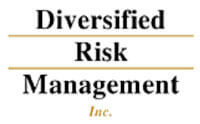Attorney Work Product Doctrine
Many of our cases are conducted at the direction of our client’s attorney; thus, our work is protected by the Attorney Work Product doctrine. The “attorney work product” doctrine protects documents and theories prepared by an attorney in the course of an investigation if litigation is pending or is anticipated.
It is generally accepted that an attorney’s work includes statements, notes, reports, and other materials created in the course of preparing for litigation. These materials can also include interrogatories, signed statements, memoranda, briefs, digital evidence, and other information they have obtained in preparation for the defense or prosecution of a case.
When taking on a case, the Attorney Work Product doctrine creates a foundation for in-depth investigations because it protects the work being performed by both the attorney and the licensed private investigator. It also shields the investigation from interference from opposing counsel should there be litigation. Most importantly, it allows the thoughts of the attorney and private investigators to breathe freely in preparation for legal action. After all, an attorney’s thoughts are often home to their entire case.
Attorney-Client Privilege
The attorney-client privilege is major a benefit of having a labor attorney involved in an investigation. The attorney/client privilege protects all communications between a client and the attorney from disclosure demands from a 3rd party. It is the client’s privilege–and cannot be unilaterally waived by the attorney. The rationale behind the privilege is simple; it encourages full and frank communication between an attorney and client. The more work that the attorney actually does, the more protection you might expect from the privilege. To be protected, the communication must be confidential and occur when an attorney is acting in his or her legal capacity.
We utilize Digital Forensic Examiners that are experienced expert witnesses. Our examiners can assist in trial preparation and competently testify. There are many professional forensic examiners, but few can concisely testify to their work processes, answer loaded questions from opposing counsel, and articulate each step of their work.
When selecting a Computer Forensics Expert Witness, you should determine the following:
- How long has the witness worked as a Digital Forensics Examiner?
- What formal training and professional certifications does the Examiner possess?
- Is the witness a member of any forensics industry or related professional associations?
- Has the witness testified in court on other similar matters?
A Due Diligence investigation is a comprehensive appraisal of a business, especially to establish its assets and liabilities. We offer a full suite of searches to ensure you have thoroughly reviewed public record information on your target.
Our offerings include:
Asset Search
Bankruptcy Records
Business Affiliations
Business Credit Report Shareholders Search
Business License Verification
Consumer Credit History
Corporate/Limited Partnership Records Search
County-Specific Criminal History
County-Specific Litigation History
Drivers Record History
Federal Court Civil History
Federal Court Criminal History
GSA/EPLS Exclusion Search
Incarceration Records
Media Survey
Military Service Verification
National Criminal History
Professional/ Technical License Verification
Real Property Ownership Records
Sex Offender Registry Search
Shareholders Search
Social Security Number Trace
Social Security Number Verification
Tax Liens and Civil Judgment Records
Terrorist Search: OFAC/CLFST,OSFI
UCC Filings
Vehicle Registration Records
Workers’ Compensation Claim History

